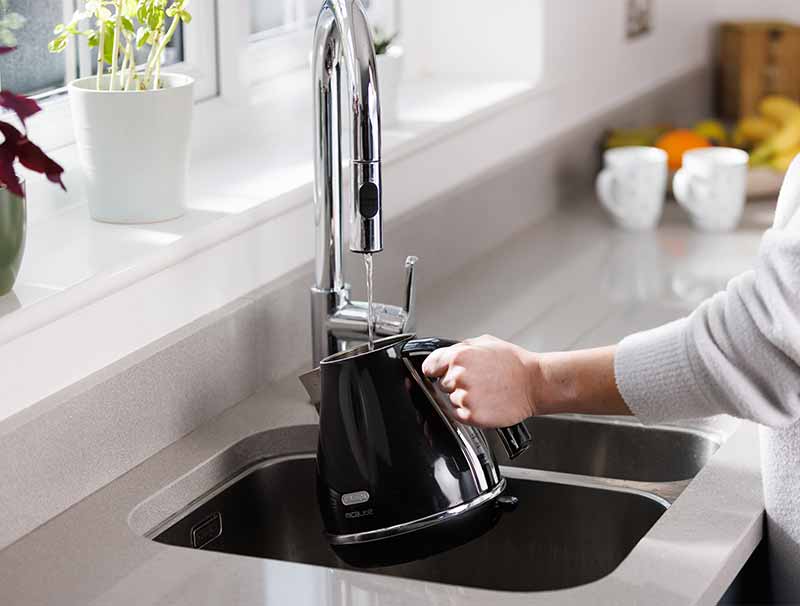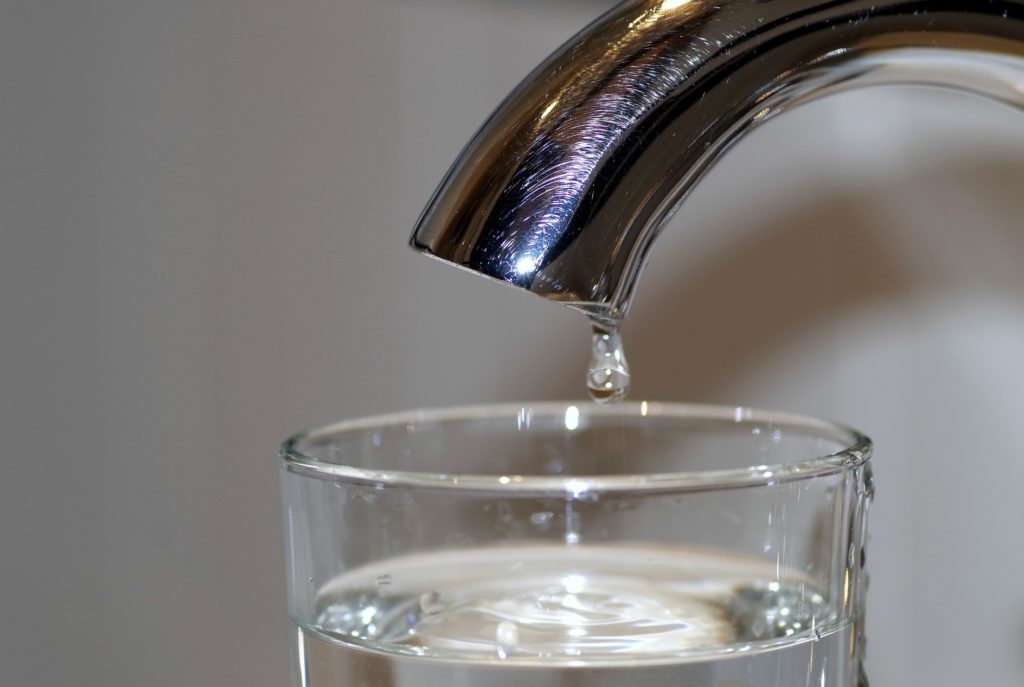Are you currently hunting for resources around 10 Reasons for Low Water Pressure in Your House?

Low water stress in your house can be a discouraging problem, impacting every little thing from showering to cleaning recipes. If you're experiencing weak water flow, there are several feasible causes and services to explore. In this overview, we'll review typical reasons for low water pressure and functional actions to address the concern successfully.
Intro to Low Water Pressure
Low tide pressure occurs when the flow of water from your taps, showers, and various other components is weaker than normal. This can make daily jobs much more difficult and much less efficient. Understanding the reasons for low tide pressure is crucial to locating the appropriate solution.
Usual Reasons For Low Water Stress
Pipeline Obstructions
In time, pipelines can come to be blocked with mineral deposits, sediment, or particles, restricting the flow of water. This is a common concern in older homes with galvanized steel pipes.
Rust
Corrosion within pipes can bring about leakages and decreased water pressure. Rust build-up can tighten water circulation, specifically in maturing plumbing systems.
Faulty Pressure Regulatory Authorities
Pressure regulatory authorities are accountable for maintaining consistent water stress in your home. If they malfunction, it can lead to low tide pressure or unequal flow throughout your home.
Municipal Supply Of Water Issues
In some cases, the trouble exists outside your home. Community water system issues, such as main line leaks or maintenance work, can momentarily lower water stress in your area.
Just How to Diagnose Low Water Pressure
Examining Faucets and Components
Begin by evaluating the water stress at various taps and components throughout your home. If the problem is separated to particular areas, it may show local issues.
Inspecting Pipes
Evaluate visible pipelines for signs of leakages, rust, or obstructions. Take note of any kind of uncommon sounds, such as knocking or rattling pipelines, which can show concerns within the plumbing system.
Consulting with a Plumber
If you're not able to determine the root cause of low tide stress, take into consideration working with a specialist plumber to conduct an extensive examination. They can determine underlying concerns and recommend appropriate services.
Do It Yourself Solutions to Repair Low Tide Stress
Cleansing Aerators and Showerheads
Mineral deposits can collect in aerators and showerheads, decreasing water circulation. Get rid of and clean up these components regularly to boost water stress.
Flushing Water Heater
Sediment accumulation in the water heater can restrict flow and reduce efficiency. Purging the storage tank periodically assists eliminate sediment and keep ideal efficiency.
Examining Pressure Regulatory Authority
Make certain that the pressure regulator is operating appropriately. Adjusting or replacing the regulator can help bring back proper water pressure throughout your home.
Clearing Clogs in Pipeline
For small clogs, attempt using a plumbing snake or chemical drainpipe cleaner to clear obstructions in pipelines. Beware when making use of chemicals and follow security standards.
When to Call a Specialist Plumber
If do it yourself initiatives fail to fix the issue or if you presume significant plumbing problems, it's ideal to look for assistance from a licensed plumber. They have the expertise and devices to attend to intricate problems safely and efficiently.
Preventive Measures to Preserve Water Pressure
Routine Upkeep
Schedule regular upkeep for your plumbing system to avoid issues such as rust, leaks, and clogs. Resolving small problems early can aid avoid more significant repair work later.
Mounting a Stress Booster
Consider mounting a stress booster pump to improve water pressure in locations with consistently low circulation. This can be especially beneficial for multi-story homes or homes with high-demand fixtures.
Monitoring Water Usage
Be mindful of water use practices and avoid ill-using the plumbing system. Basic changes, such as astonishing showers and laundry lots, can aid maintain sufficient water stress.
Final thought
Managing low tide pressure can be aggravating, however identifying the underlying causes and applying suitable services can recover optimum circulation throughout your home. Whether it's cleansing aerators, checking pipelines, or seeking advice from a plumber, taking positive steps can make sure a consistent supply of water for your daily demands.
HOW TO FIX LOW WATER PRESSURE IN YOUR HOUSE (EXPERT GUIDE)
The morning shower lacking any real pressure? Bathtub taking hours to fill? Or maybe you’re dissatisfied with the inadequate performance from your combi boiler?
Then you, like millions of others across the UK, might be experiencing low water pressure.
Fortunately, the good news is that you don’t have to continue living this way. The cause of low water pressure in the home is often quite simple, and you may not even require a plumber to fix the problem.
What causes low water pressure in the house?
If you are experiencing issues with water pressure throughout your home, then you may have one of the problems outlined below.
Most of these problems can be fixed quite easily, but for others, you may need to contact a plumber.
Obstructed Shutoff Valve
If you’ve just bought a new home or recently had building work conducted on your property, there is a chance that your water valves were not fully opened.
If the water valve is partially closed, then you may be restricting the amount of water entering your home. To fix this, simply ensure the valve is fully open.
If the valve appears fully open but you are still encountering reduced water pressure, then the valve may be broken. If this is the case, do not under any circumstances try to fix it without proper training.
Often found under your kitchen sink, a water valve will usually look like a bright yellow handle.
Again, if you believe the water valve is broken, contact a plumber immediately.
Leaks in Your Water Pipes
Leaks are the worst-case scenario when it comes to low water pressure.
If the water pipes are damaged, then this will cause low water pressure, as not all the water will make it to your taps.
After you’ve checked to see if the valve is fully open, you can conduct a leak check of your home. Now, this may seem scary, but it is actually quite simple.
Clogged Water Pipes
Clogged water pipes are one of the most common causes of low water pressure.
These clogs usually build-up when your home is supplied water via iron pipes. Iron is particularly vulnerable to rusting which can then break off and cause an obstruction within your system. You also face the problem of things like dirt, gravel or sand entering creating mineral deposits which further block water flowing from the mains water supply.
Unfortunately, if you suspect that clogged pipes may be restricting your water supply, then you will need to contact a plumber.
In this situation, you will either need to have your pipes removed and cleaned or in more severe cases, you could require a new set of water pipes.
Designer Taps
Designer taps look fantastic, but are they built to be efficient in your plumbing system? Modern taps are built for modern homes and they often have lower flow rates that are specifically designed for use within high-pressure systems.
Install a Water Pressure Booster Pump
If the issue is simply that the mains water pressure supply is too low, the simplest fix is to invest in a booster pump. Found in homes of all shapes and sizes, booster pumps are a relatively cheap option to add extra pressure to your home.
Designed to increase water pressure by passing water into the pump from your mains supply and then ejecting it into your home water system at a higher pressure, a booster pump is a truly simple and effective solution to increasing water pressure.
https://www.anchorpumps.com/blog/the-plumbers-guide-to-fixing-low-water-pressure/

HOW TO FIX LOW WATER PRESSURE IN YOUR HOUSE (EXPERT GUIDE)
The morning shower lacking any real pressure? Bathtub taking hours to fill? Or maybe you’re dissatisfied with the inadequate performance from your combi boiler?
Then you, like millions of others across the UK, might be experiencing low water pressure.
Fortunately, the good news is that you don’t have to continue living this way. The cause of low water pressure in the home is often quite simple, and you may not even require a plumber to fix the problem.
What causes low water pressure in the house?
If you are experiencing issues with water pressure throughout your home, then you may have one of the problems outlined below.
Most of these problems can be fixed quite easily, but for others, you may need to contact a plumber.
Obstructed Shutoff Valve
If you’ve just bought a new home or recently had building work conducted on your property, there is a chance that your water valves were not fully opened.
If the water valve is partially closed, then you may be restricting the amount of water entering your home. To fix this, simply ensure the valve is fully open.
If the valve appears fully open but you are still encountering reduced water pressure, then the valve may be broken. If this is the case, do not under any circumstances try to fix it without proper training.
Often found under your kitchen sink, a water valve will usually look like a bright yellow handle.
Again, if you believe the water valve is broken, contact a plumber immediately.
Leaks in Your Water Pipes
Leaks are the worst-case scenario when it comes to low water pressure.
If the water pipes are damaged, then this will cause low water pressure, as not all the water will make it to your taps.
After you’ve checked to see if the valve is fully open, you can conduct a leak check of your home. Now, this may seem scary, but it is actually quite simple.
Clogged Water Pipes
Clogged water pipes are one of the most common causes of low water pressure.
These clogs usually build-up when your home is supplied water via iron pipes. Iron is particularly vulnerable to rusting which can then break off and cause an obstruction within your system. You also face the problem of things like dirt, gravel or sand entering creating mineral deposits which further block water flowing from the mains water supply.
Unfortunately, if you suspect that clogged pipes may be restricting your water supply, then you will need to contact a plumber.
In this situation, you will either need to have your pipes removed and cleaned or in more severe cases, you could require a new set of water pipes.
Designer Taps
Designer taps look fantastic, but are they built to be efficient in your plumbing system? Modern taps are built for modern homes and they often have lower flow rates that are specifically designed for use within high-pressure systems.
Install a Water Pressure Booster Pump
If the issue is simply that the mains water pressure supply is too low, the simplest fix is to invest in a booster pump. Found in homes of all shapes and sizes, booster pumps are a relatively cheap option to add extra pressure to your home.
Designed to increase water pressure by passing water into the pump from your mains supply and then ejecting it into your home water system at a higher pressure, a booster pump is a truly simple and effective solution to increasing water pressure.
https://www.anchorpumps.com/blog/the-plumbers-guide-to-fixing-low-water-pressure/
Do you appreciate reading about Low Water Pressure in the House?? Place a comment directly below. We would be delighted to hear your responses about this page. In hopes to see you back again soon. Kindly take the time to promote this blog posting if you enjoyed reading it. Bless you for being here. Come back soon.
Call Today